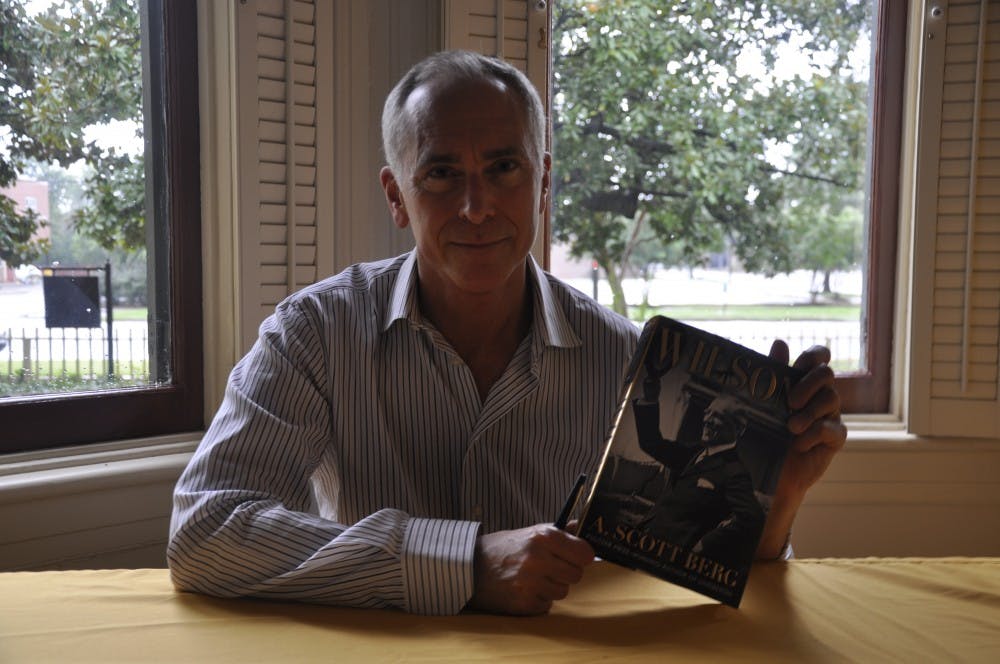Columbia, South Carolina is affectionately known as the City of Dreams.
Where the term comes from remains a mystery, but it is certainly applicable to the 28th President of the United States, Woodrow Wilson, who spent many crucial years of his adolescence in our state’s capital.
Wilson is the focus of Pulitzer Prize-winning biographer A. Scott Berg’s latest work. Berg came to Columbia last weekend to discuss his book at the family home of the former President. Berg’s biographical works apply contemporary points of view toward many of the leading figures of the 20th century.
“I tried to humanize Woodrow Wilson,” Berg said. “I tried to personalize him to show as many of the emotional aspects of his life as I could. At the same time, I want the reader to see what was different then from today.”
WILSON IN COLUMBIA
Crucial to Wilson’s development was his life in Columbia, though he didn’t always appear an explicit Southerner in his political life. Berg said that although he did not have an accent, the South remained an important part of Wilson.
It was in the South that Wilson started to read a lot, found a religion and became interested in politics.
“Columbia during Reconstruction — the government was just sort of upside-down and that intrigued him. It was a real mess,” Berg said. “He wanted to get into the system and make it better.”
But the passion and intellectual success wasn’t as predestined for Wilson as it may seem today; he wasn’t always the best in his class, Berg said.
“He was a kid, but by the time he got to Columbia he was a serious teenager,” Berg said.
And as important as Columbia was to Wilson, the city made a favorable impression on his reputable biographer, as well. Berg used the city less for scholarly research on the man, but more as a lens through which to understand the young Wilson’s development.
“You get a feel of what a young man’s life was when you walk where he walked, when you feel the weather he felt,” Berg said. “All the people here are so extremely helpful. It’s really a wonderful place, there is so much history here in Columbia.”
BERG’S WORK
Though his books focus on larger-than-life public figures, Berg concentrates on the legacy of these people as human beings, rather than burying them under abundances of dry research.
“The hardest thing is to find documents that can support it — I had nobody to interview,” Berg said. “I had to go through personal papers. Everywhere, I could I looked for the story behind the story, what was going on emotionally while this was happening historically.”
And Wilson has a lot in common with several of Berg’s former subjects, including Charles Lindbergh, the subject of his work that won Berg the Pulitzer Prize for in 1999.
“All my subjects have been 20th century Americans. Then, the question is ‘Through whose life can I tell a larger story about American culture, or some larger aspect of American culture?’ Then I would say, people who have changed the culture a great deal, they all kind of took a real leap,” Berg said.
Max Perkins, Berg’s first subject, was a newspaper editor. Lindbergh was an aviator. Wilson was a college professor. And, according to Berg, they all had a vision.
BERG’S WORDS
His time in Columbia will certainly add to Berg’s wealth of stories to tell.
As an experienced biographer, Berg believes the art of storytelling is even more invaluable to the laborious process of researching these historical giants.
“You have to have two brains about it,” Berg said. “One side is collecting and collecting, the other is pouring it out. I don’t know if you remember the old Rumpelstiltskin spinning straw into gold. All the facts, they’re really just straw, it’s just a fact. Until you can spin it into something golden, it’s meaningless for a reader, why should the reader care?”
In 2014, with newspapers buzzing with 100-year anniversary editions dedicated to the outbreak of World War I, Wilson is as discussed a man as any. Berg does not think that will let up, for this President’s legacy is paramount in understanding our world today.
“For the next eight years, every day is going to be the anniversary of something important in Woodrow Wilson’s presidency,” Berg said. “So much of the world today goes back to what Wilson did 100 years ago. Our entire foreign policy to this day is based on his speech on April 2, 1917 when he said the world must be made safe for democracy. Wow, you can’t say that about another President.”

